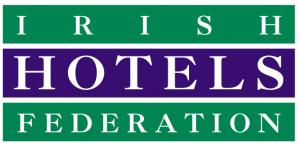
The Irish Hotels Federation (IHF) has called on government to introduce a five-point emergency to plan to help the beleaguered industry avoid further devastating losses to revenue and jobs.
The latest survey from the IHF reveals a €2.6 billion drop in hotel and guesthouse revenues during 2020 compared to the previous year, representing an unprecedented financial hit to the sector. The 60 per cent year-on-year drop has affected all areas of hotel operations – from accommodation, food and beverage to corporate events and social gatherings and has cost an estimated 160,000 job losses since March 2020 to .
Occupancy levels plummeted to a record low of 30 per cent compared to the 73 per cent registered in 2019 – in actual terms, that accounts for a loss of 9.5 million bed nights. And it’s not going to get any better soon: the current lockdown and restrictions, coupled with the near obliteration of overseas tourism into the country, means that the sector will continue to face enormous financial challenges and uncertainty. The IHF has renewed its call for additional government supports as matter of urgency to save tourism businesses.
IHF chief executive Tim Fenn said, “we have experienced nothing short of a catastrophic financial shock, with risks of a prolonged and devastating impact on our industry and the ability of tourism businesses to survive and recover. Government supports so far have been piecemeal and fallen far short of what is required given the extended restrictions and economic damage facing our sector.”

Emergency Tourism Budget
“The Government must come forward with a more coherent, sector-specific programme of supports and measures to secure the long-term financial sustainability of hotels and guesthouses,” says the latest IHF statement. “We are calling for decisive Government action in the form of an Emergency Tourism Budget to include substantial increases in payments to tourism businesses under the Covid Restrictions Supports Scheme (CRSS), enhanced employment subsidies, extension of the local authority rates waiver until the end this year and a further six-month moratorium on bank term loans to support cashflow.”
The statement also calls for a clear government commitment to retaining the 9 per cent tourism VAT rate, adding that “tourism businesses such as hotels are now contracting for international business up to two years out in an exceptionally competitive market with one hand tied behind their back. As yet, they have no pricing certainty in relation retention of this critically important VAT measure and this must urgently be addressed.”
The tone of the statement is unequivocal in its request for help. “It is critical that we get certainty around supports for business recovery. We cannot afford any delay if businesses are to have a fighting chance of getting back on their feet this year. A severely devastated hotels sector would be a major loss to Ireland’s economy and society for many years to come. This can and must be avoided.”
Five Urgent Measures Required from Government
- Covid Restrictions Supports Scheme (CRSS): Targeting businesses with 75% drop in revenue, doubling of payment amounts irrespective of level of Covid restrictions as well as removal of the current €5,000 weekly cap
- Employment Wage Subsidy Scheme (EWSS): Extension of the scheme up until the end of 2021 to enable tourism businesses retain staff.
- Local Authority Rates: Extension of waiver for tourism businesses until end of 2021. After that, payment of local authority rates should be based on reduced levels of activity due to the crisis and until the industry has recovered.
- Liquidity Measures – Further six-month moratorium on bank term loans to support cash flow. Additional mortgage deferment for employees impacted by the crisis.
- 9% VAT – Clear commitment re retain 9% tourism VAT at least up until 2025 to assist recovery and provide certainty for tourism businesses.
The statement concludes with an ominous warning that failure to support the industry now “will have ramifications for the future of Ireland’s tourism offering and for the economy that could take decades to recover fully.”




